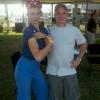Runaway trim
-
Members Online
- ElisiumNate
- eman1200
- VetRepp
- boldt35
- Ed de C.
- Fly Boomer
- dc0341
- Guillaume
- Thedude
- Scopes
- Boonchuk
- GMBrown
- pirate
- Ragsf15e
- N201MKTurbo
- 47U
- Niko182
- Dick Denenny
- pgmona
- 00-Negative
- Neshi
- Mreed420
- Twing207
- larryb
- Bunti
- christaylor302
- TCC
- PT20J
- exM20K
- Philofficer
- jjvanl
- TNIndy
- AVDB
- kortopates
- Shiroyuki
- Jim F
- FoxMike
- Deb
- AspiringOwner
- Rick Junkin


Recommended Posts
Join the conversation
You can post now and register later. If you have an account, sign in now to post with your account.